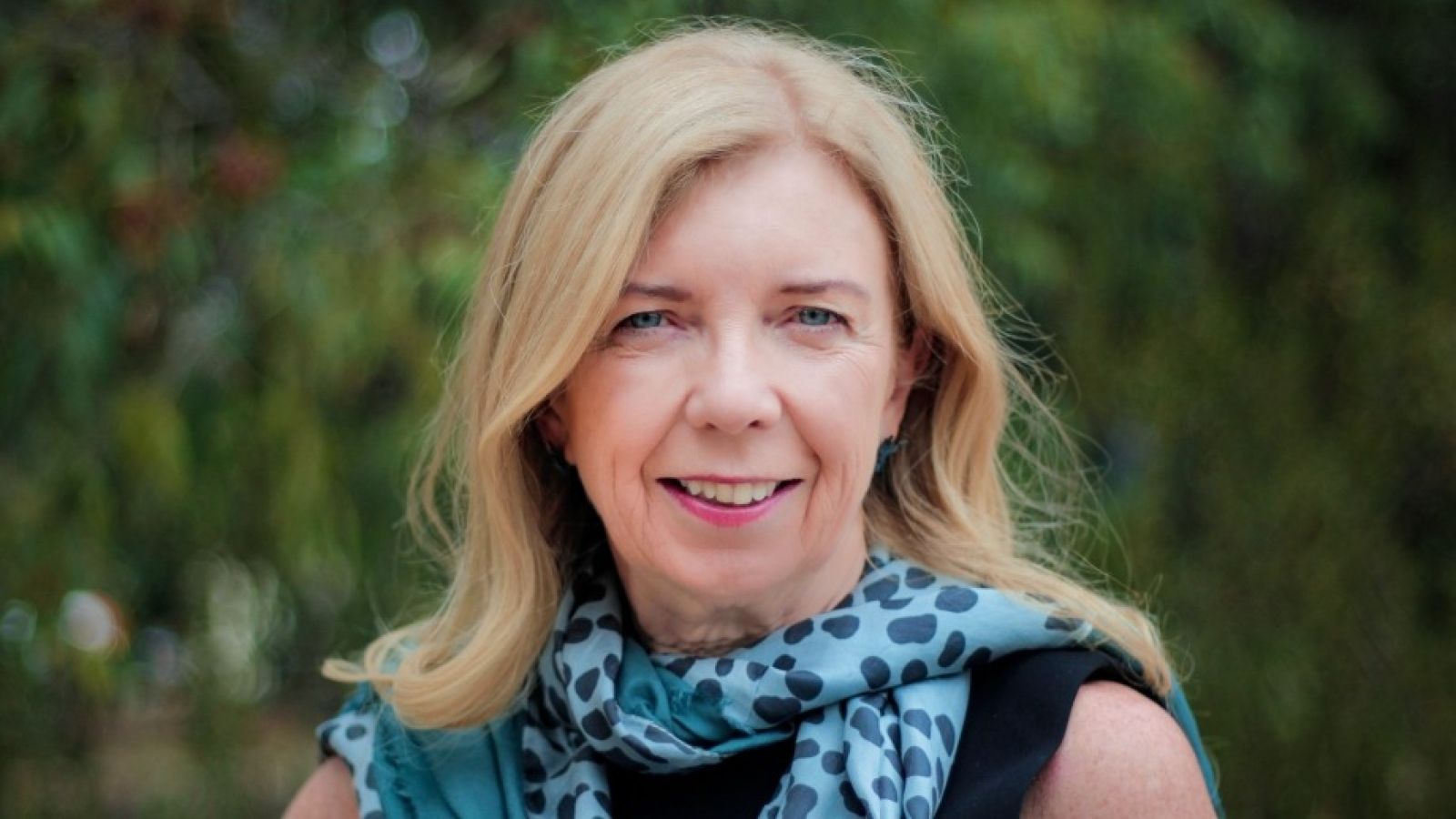Historian Ann McGrath named W K Hancock Professor

Historian and award winning author Professor Ann McGrath AM is the new W K Hancock Professor of History at ANU.
The William Keith Hancock Chair of History is named for Sir Keith Hancock, the first Director of the Research School of Social Sciences and its foundation Professor of History. One of the most senior academic positions not only in the University, but in the wider history community, Professor McGrath carries on the legacy of some of Australia’s most notable historians who have held the role including Ken Inglis, Oliver MacDonagh, and most recently Tom Griffiths. She also becomes the first woman honoured with the appointment.
“It’s a huge honour,” Ann says of her appointment.
“Hancock was an innovator; he wrote an insightful history of Australia as far back as 1930 in which he acknowledged the tragedy of Indigenous dispossession. He worked on every scale – the big history of the British Commonwealth and he pioneered environmental history, focusing upon the Monaro/Canberra region. He believed in historical span, in justice and in the need for empathy with history’s actors".
As a young scholar, and the first in my whole family to attend university, it really boosted my confidence when I was awarded the Australian Historical Association’s WK Hancock Prize for my first book Born in the Cattle: Aborigines in Cattle Country. Now as a senior scholar, and holding the Chair at ANU where Hancock made such an impact in shaping an outstanding legacy, I’m really proud to hold this title, and to be the first woman to do so sends a positive message to young female scholars.”
Ann was made a Member of the Order of Australia in 2017 for her service to Indigenous history and higher education. Her work has been recognised numerous times, including the 2016 NSW Premiers History Prize for her book 'Illicit Love: Interracial Sex and Marriage in the United States and Australia.' She is a Fellow of the Academic of the Social Sciences in Australia, and the Australian Academy of the Humanities.
Head of the ANU School of History Professor Frank Bongiorno AM recognised Ann’s outstanding work and the honour of being named to the position.
“The W.K. Hancock Professor is a highly significant leadership role at the Australian National University and in the wider historical profession, and it has been held in the past by some of this country’s finest historians. Professor McGrath is a most innovative scholar in the field of Indigenous History, currently leading a major Australian Research Council project on the deep human past that radically challenges conventional ways of thinking about history. She will bring great distinction to the Hancock Chair.”
Ann believes knowledge of our country and our world is crucial, and integral to that is an understanding of history. As an ARC Laureate and Director of the Rediscovering the Deep Human Past Laureate Program, her work is helping to deepen understanding of Australia’s rich and unique past. The project looks far beyond the traditional written sources of history, collaborating with the sciences to reveal a deeper, richer narrative into the ancient past.
“The many nations of Aboriginal Australia did not only have a rich culture, they had a history. But how do we research that history, how do we tell it?” Ann Asks. “We want to explore Indigenous narrative traditions as clues to that ancient past. Once we learn more about these, we don’t think that history as a discipline will remain the same.”
First studying Australian history as an undergraduate at the University of Queensland, Ann found general histories alienating because they excluded many segments of society, including women and Indigenous Australians. Guided by mentors including Kay Saunders and Ray Evans, she came to recognise history’s potential for activist scholarship - to reveal truths and to correct wrongs.
“I was blown away by its potential to expose the lies and omissions that had perpetuated injustice for so long. Once I started to learn about history more directly from Aboriginal women and men who had worked in the northern cattle industry, what came out was their deeply storied, enduring connection to country.” Ann says. “They taught me that historians had not just been looking in the wrong places but had been asking the wrong questions. So what makes me proud to be a historian? Helping to shift the narrative. And enriching the present by sharing insights kindly shared by others in the past and present.”
Ann’s work and that of the Deep Past Laureate Program occurs at a time of much public discourse over Indigenous recognition and empowerment. How does Ann think historians in the future will look back on these issues of today?
“Historians will look back on this time as an awakening about the long Indigenous past. But they will note the slowness of change, the many times when a treaty almost happened and was derailed by a lack of conviction, a lack of an orientation towards the national future. They will wonder why the Uluru statement from the heart, which called for a reckoning of Australia’s indigenous history, was seen as radical.”